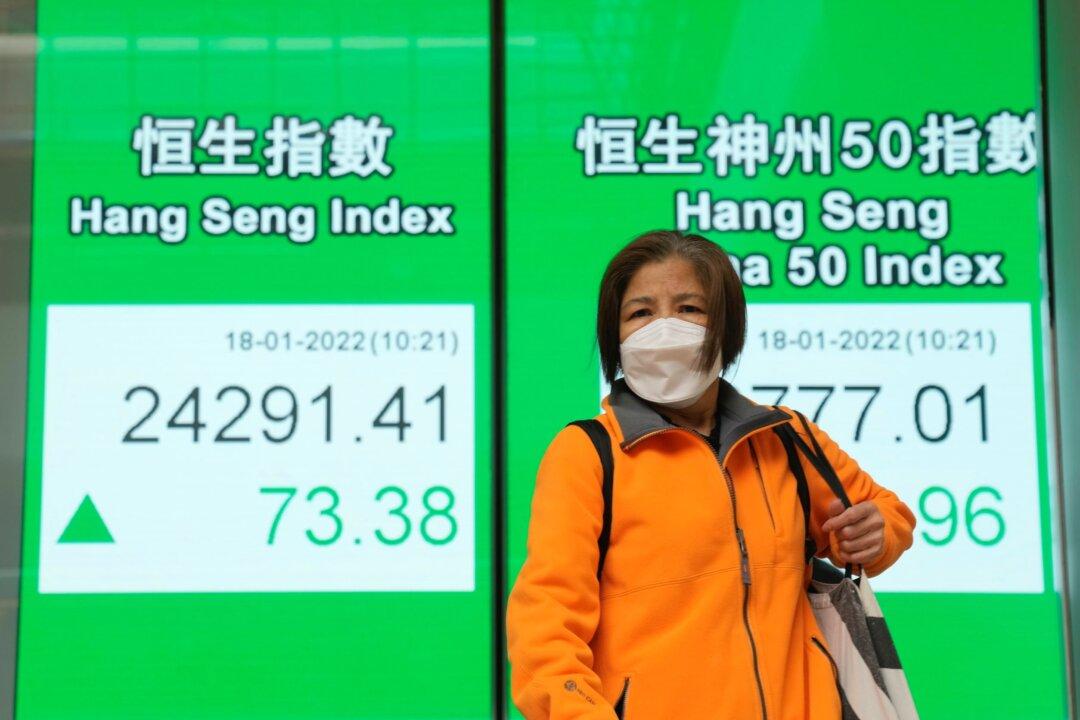TOKYO—Global shares were mostly lower Tuesday following a national holiday in the U.S, while oil prices surged following an attack on an oil facility in the capital of the United Arab Emirates that killed at least three people.
Benchmark U.S. crude rose $1.44, or 1.7 percent, to $85.26 a barrel in electronic trading on the New York Mercantile Exchange. It gained $1.70 to $83.82 per barrel on Monday.





